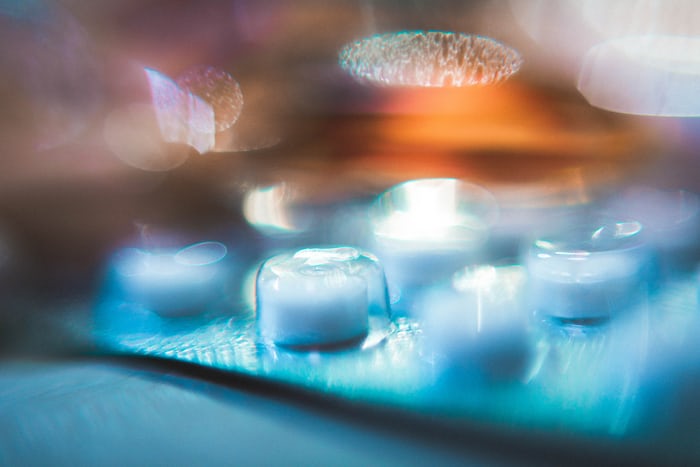Biosimilars are biologic medical products, such as antibodies, proteins and peptides, that are highly similar to, and do not differ from their branded counterparts in any clinically meaningful way. In March 2015, Zarxio (filgrastim-sndz), the biosimilar version of Amgen’s Neupogen (filgrastim) became the first biosimilar to be approved by the U.S FDA. Many industry watchers hoped that further biosimilars would quickly follow, bringing high quality, lower cost biologic medicines to key therapeutic areas, much as the advent of generic drugs had done for small molecule therapeutics.

Until recently, however, the availability and sales of biosimilars have remained relatively low due to the infancy of the industry as well as manufacturing complexities. Biologics are produced using living organisms such as yeasts and bacteria – a manufacturing process that is much more complex and gives rise to more potential variability in the resulting molecule than the chemical synthesis used to produce small molecule drugs. This manufacturing complexity has enabled biologics producers to construct dense patent thickets that have helped keep competing low-cost biosimilars away from the market for longer periods. The biologic manufacturing process can also result in a slight but usually clinically inconsequential variability between a biosimilar and its originator product. This potential difference between the two molecules has until recently prevented pharmacists from substituting a lower cost biosimilar for its named-brand counterpart without prior physician approval, unlike what happens for generic small molecule drugs that can readily substitute named-brand ones at the pharmacy level – a concept known as “interchangeability.” Barriers to biosimilars’ widespread availability and adoption have resulted, but the situation is changing.
Indeed, as of this year, the FDA has approved a total of 34 biosimilars for the treatment of a variety of conditions, including rheumatoid arthritis, Crohn’s disease, and multiple cancers. According to a report by BCC Research, the global market for biosimilars is expected to reach approximately $20.8 billion in 2022, growing at a compound annual rate of 30.5% through 2025. This translates to significant savings in the cost of medications. IQVIA data shows the savings from biosimilars increased from under $900 million in 2018 to $7.9 billion in 2020, and they are expected to reach over $30 billion this year. As a result, experts project that US health care systems will save approximately $133 billion between 2021 and 2025, as new biosimilars are launched and competition increases between manufacturers offering multiple versions of the same therapeutic.
Likely spurring a further rise in biosimilars growth, the FDA granted marketing approval in July 2021 to the first biosimilar specifically designated as “interchangeable” by pharmacists without prior physician approval. Developed through a collaboration between Biocon Biologics (a subsidiary of Biocon) and Viatris, SEMGLEE (insulin glargine-yfgn) is a biosimilar version of Sanofi’s long-acting insulin analog, Lantus (insulin glargine). The ability of pharmacists to readily substitute SEMGLEE for Lantus can reduce the cost of medication to insulin-dependent patients by 15-35%. Since the biosimilar’s launch in November 2021, SEMGLEE has already claimed at least 10% of the market for long-acting insulin.
Further interchangeability designations have followed. In October 2021, the FDA approved the first interchangeable biosimilar antibody, Boehringer Ingelheim’s Cyltezo (adalimumab-adbm), a version of Abbvie’s Humira (adalimumab). According to Endpoints News, as many as 10 other Humira biosimilars are expected to reach the market in 2023, including several that are seeking the interchangeability designation.
The recent uptick in FDA approvals has encouraged a wave of integrations and consolidations. In February of this year, Biocon Biologics bought out the global biosimilars assets of its longtime partner, Viatris, which was spun out upon Mylan’s acquisition of Pfizer’s Upjohn medicines business. The $3.3 billion cash and stock deal was aimed at creating a fully integrated global biosimilars company. Through the acquisition, which is scheduled to close in the second half of 2022, Biocon gains Viatris’s interest in the companies’ partnered products, including marketed biosimilars to Roche’s HER-2 cancer drug Herceptin (trastuzumab) and Amgen’s neutropenia drug Neulasta (pegfilgrastim), as well as around 10 other biosimilar development programs. Biocon will furthermore gain rights to Viatris’ broader portfolio of biosimilars for indications including diabetes and metabolism, immunology, and oncology, including approximately 150 marketing authorizations.
Biocon Biologics says the acquisition is transformational for the company. The company expects to become a fully integrated, world-leading biosimilars enterprise with strategic agility and operational efficiencies that can help mitigate pricing pressures, including those stemming from increased biosimilars competition. Moreover, by acquiring access to Viatris strong commercial organization, Biocon Biologics is securing a robust marketing presence in both the United States and European Union. The deal is expected to close in the second half of this year. After divesting its biosimilars business, Viatris plans to focus on generic drugs and injectables.
Consolidation is happening among other biosimilars players as well. In January 2022, Samsung Biologics announced they would acquire Biogen’s near 50% stake in their biosimilars joint venture, Samsung Bioepis, for up to $2.3 billion. Founded in 2012, Samsung Bioepis has six approved biosimilars and five more in development.